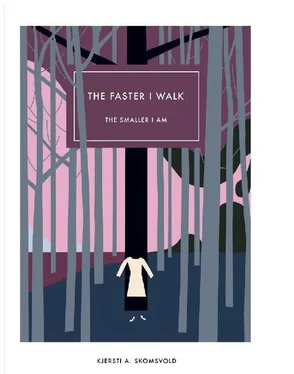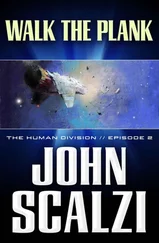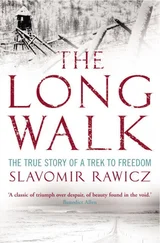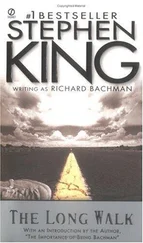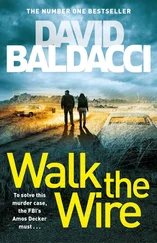Kjersti Annesdatter Skomsvold
The Faster I Walk The Smaller I am
For Espen, Åsmund, Mamma, and Pappa
I LIKE IT WHEN I can be done with something. Like a knitted earwarmer, like winter, spring, summer, fall. Even like Epsilon’s career. I like to get things over with. But impatience has consequences. That time when Epsilon gave me an orchid for my birthday. I didn’t really want an orchid. I never got the point of flowers, they’re just going to wither and die. What I actually wanted was for Epsilon to retire.
“But I need a refuge, away from all the. ”—for a second I thought he was going to say “togetherness,” but instead he said “nakedness.” “Does that mean me?” I asked. “I’m not naming any names,” he said.
So I undressed for the orchid instead, and soon the buds began to blossom, little pink flowers were springing out everywhere. “I wish you had the same effect on me,” Epsilon said.
The directions that came with the orchid said to prune the flowers after they wilt, then they’d revive in six months. First, though, the flowers had to die. So I watched and waited and finally I couldn’t stand it any longer. Time to be done, I told myself, and then I pruned the plant down to its skinny, bare stalks.
“What happened here?” Epsilon asked when he came home from work. “I did what I had to do,” I said. “The flowers wouldn’t wither. But don’t worry. There will be flowers again in six months, just in time for fall. If I’d waited any longer, we would have risked not having flowers until winter.”
But fall came and went, and then winter, and then spring, the flowers didn’t return, the orchid was dead, and for my next birthday I got a throw pillow.
Now that I’m lying in bed, I’m the very opposite of impatient. I’m wishing I could save what little I have left of my life until I know exactly what to do with it. For that to happen I’d have to lock myself in a freezer, but all we’ve got is the small one in the refrigerator. I can hear people coming home from work, they’re thinking about their dinners, and here I am in bed, and the whole thing reminds me of a book I once read.
Maybe I should turn off the lights. Not that it matters, the man with the scythe can see in the dark, he’ll find me no matter what. What will it be? My legs? My arms? I’m wondering. I wiggle my fingers and toes. The left side of my body’s numb. The right side too. It’ll probably be my heart. Before Epsilon, my heart was like a grape, and now it’s like a raisin. Or maybe my shriveled tonsils? You can’t trust those things.
It may take a long time before anyone realizes I’ve died. I read about a Chinese man who was dead in his apartment for twenty years, they could tell from the date on the newspaper on the kitchen table, and when they found him he was just a skeleton in pajamas. I’ll wind up a skeleton in pajamas too. But, I’ll start to smell before that, and first the neighbors will think it’s the Pakistanis on the first floor, but when the Pakistanis start complaining too, someone will remember the little old lady on the third floor. “But didn’t she get shot dead during the war?” they’ll ask. “No,” June, my next-door neighbor, will tell them. “I saw her last Christmas. Time to call emergency.”
When I was a child, I always dreamed of being taken away by an ambulance, and when there was one nearby, I’d cross my fingers and whisper: “Let it be me, let it be me,” but it never was me, the ambulances were always moving away from me, I could tell by the sirens. Now I hear ambulance sirens in the distance again, they should be coming to get me because I’m wearing clean underwear and will be dying soon. But no, there’s someone else in the ambulance instead, someone who’s no longer responsible for their own destiny.
It’s getting dark, I’m trying to concentrate on something useful, and the only thing that matters now is to figure out what my last words will be. “The probability that we’re going to die is smaller than ε, if ε equals a microscopically small quantity,” I told Epsilon. It wasn’t like me to say something like that. I wish I’d said something different.
I want to say something meaningful, make my last words rhyme, so I lay awake the whole night trying to think up something appropriate. I know I’ll never get out of bed again. But then morning comes and I feel so hungry.
Epsilon says that, statistically speaking, a given person will probably die in bed.
Maybe I should get up now.
LIVE LIFE. Seize the day. I’m standing next to my bed, but I don’t know how to seize my day. Finally, I decide to do what I always do: read the obituaries.
But first I head for the bathroom. I’m still wearing the black dress from the day before, and from many days before that. Yesterday my dress was especially black. Epsilon is a short man, so I don’t know why the bathroom mirror is hung so high. Epsilon says he’s happy with it because he just needs to see where to part his hair. My back’s so bent I can’t see anything. I stretch myself and then putter up to the counter on the tips of my toes. Now I can see the upper half of my face in the mirror, like a nixie lurking with half its head sticking out of water, to lure you in. It’s strange to think the half-face in the mirror is me. I look straight into my eyes. Why bother with appearances when no one’s looking? I go out into the hall to get the newspaper.
It’s possible that my next-door neighbors, June and his mother, know I exist. Even if they do, they won’t miss me when I’m gone. They’re the only ones besides Epsilon and me who’ve lived here since the building was first put up, and I remember June from when he was a little boy. His real name is Rune, but his mother can’t pronounce the letter r . It was probably his father who came up with the name because he had a special interest in old languages. Later, he got interested in accountants. June’s mother is one of the few people I’ve ever been in the habit of greeting regularly. This was back when we first moved in and I didn’t know any better. “Hello,” I’d say every time we passed in the hall. And since we passed each other several times a day, the routine got awkward pretty quickly. In the morning it was fine, but then we might see each other when she was coming up from the cellar and I was appearing out of the blue. “Hello.” A couple of hours would go by and then we might run into each other outside the laundry room. Each time, I’d say “how are you?” and force myself to smile. When I took garbage to the chute at night and she was hovering around on some mysterious errand, I’d pretend I had bad night vision and couldn’t see her. I’d feel my way along the wall in the dimly lit hallway, and the next morning the whole painful routine would start again. It was a relief when her husband left her for the accountant on the floor below and she stopped going out. June was still a kid, and suddenly he was forced to run all the household errands himself, so maybe it isn’t surprising that he grew into an unlikable adult. He never said hello when he saw Epsilon and me, and I didn’t say hello either. So after the deaf woman moved out of the apartment building, I left all other greetings to Epsilon. “Morning,” Epsilon would say and June would ignore him, except the one time he gave us the finger. “How fun,” Epsilon said. He wasn’t trying to be ironic, Epsilon is never ironic. “That’s a new one. Probably something he picked up in the Boy Scouts.”
Sometimes June or his mother peeks out their door at the very moment I do, to grab their newspaper off the mat, and it’s uncomfortable every time.
Читать дальше
